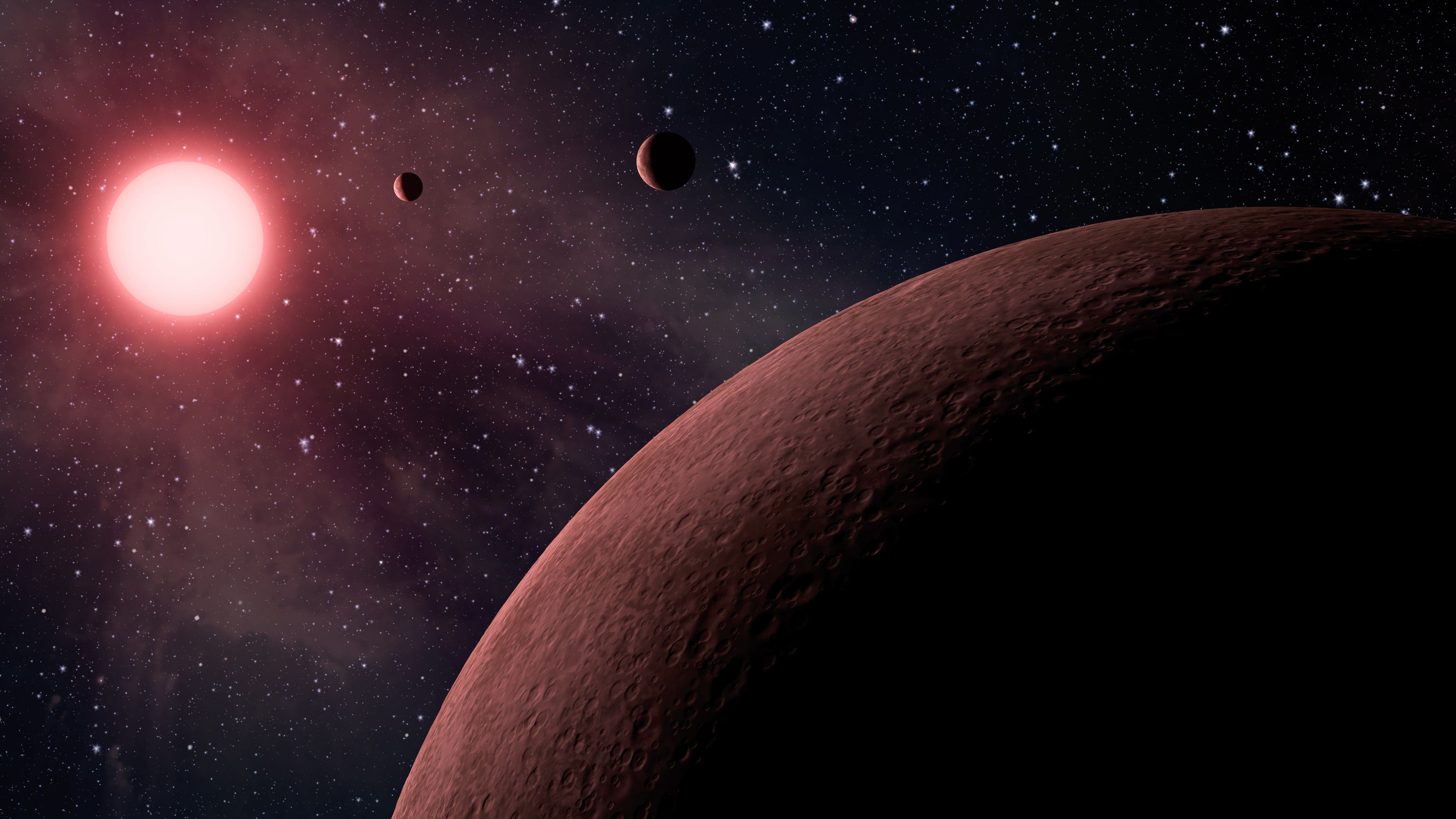Create a free profile to get unlimited access to exclusive videos, sweepstakes, and more!
Physics Nobel Prize awarded for cosmic discoveries — and what they could mean for ET life

This year’s Nobel Prize in Physics will go to three scientists whose body of work has transformed scientific consensus on the scope of our universe, as well as expanded our insight into the cosmic conditions that could harbor extraterrestrial life.
The Royal Swedish Academy of Sciences revealed its three Nobel winners in physics today, splitting the award among Princeton University’s James Peebles; and astronomy research duo Michel Mayor of the University of Geneva and Didier Quelozof the University of Geneva and the University of Cambridge. Together, Mayor and Quelozof are credited with making the first discovery of an exoplanet — a planet to exist outside our solar system.
In many ways, this year’s physics prize rewards cumulative research and discovery that has been long in the making for all three recipients. Mayor and Queloz essentially exploded astronomers' fact-based observations that planetary systems appeared to be limited only to our solar system back in 1995. That year the two discovered exoplanet 51 Pegasi b (named after the star it orbits) — a gas giant planet about half the size of Jupiter that circles a star comparable to our sun.
Their initial confirmation that the solar system is not unique as a collection of planets orbiting a central star, and the knowledge that other stars provide their own versions of orbital systems for planets, has fueled scientific inquiry into the larger implications ever since. Including the idea that other systems throughout the galaxy could harbor the necessary conditions for life ever.
That first discovery by Mayor and Queloz "started a revolution in astronomy and over 4,000 exoplanets have since been found in the Milky Way," the Nobel Prize Committee said in a tweet. "Strange new worlds are still being discovered, with an incredible wealth of sizes, forms, and orbits."
Peebles earned his share of this year’s prize for "theoretical discoveries in physical cosmology." This is the committee’s way of distilling a decades-long career highlighted by momentous observations and discoveries, all to inform Peebles’ "theoretical framework" of cosmology that’s become an essential conceptual model for today’s astrophysicists. The committee explained that Peebles' framework "is the foundation of our modern understanding of the universe’s history, from the Big Bang to the present day."
Princeton physics professor Bill Jones, a colleague of Peebles', also sang his praises in a formal announcement.
"It is difficult to overstate Jim’s contributions to humanity’s understanding of our place in the universe," read Jones' announcement. "In addition to laying a great deal of the theoretical groundwork for modern cosmology, Jim pioneered many of the methods that have made cosmology a predictive science and one that allows us to test our theories with observational data."
Peebles is the Albert Einstein Professor of Science, Emeritus, and Professor of Physics, Emeritus. He shares the prize with Michel Mayor of the University of Geneva and Didier Queloz of the University of Geneva, Switzerland, and the University of Cambridge. The prize amount is 9 million Swedish kroner, or about $908,280, with Peebles receiving half of the award.
All three laureates will travel to Stockholm on Dec. 10 to accept their Nobel medals.


























